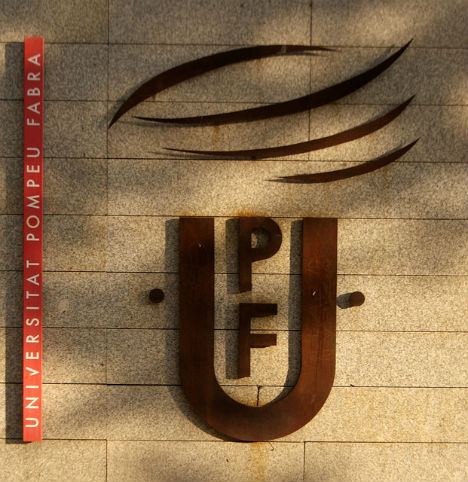The Pompeu Fabra University (UPF) in Barcelona is grouped among universities less than 50 years old that have risen the most in the THE’s World University rankings, traditionally dominated by institutions founded between the 11th and 19th centuries.
Typically, the older a university is, the better it tends to do in rankings.
But the publically funded Pompeu Fabra, founded in 1990, is among those bucking the trend, THE said, and is identified as one of seven "young guns" identified in the "Young Universities Summit Report".
Barcelona's Pompeu Fabra, which ranked 165 in the 2014-15 THE World University Rankings, is Spain's highest ranking university and the only one to appear in the top 200.
Now it has been recognized for its swift rise up the ranks, moving 12 places in just four years.
The university, with 9,568 undergraduate students, 3,319 master students and 1,156 doctoral students is among a group of rising stars that have shown what others developed over centuries "can be achieved in a matter of decades".

Photo: Teresa Grau Ros/Flickr
The small research-based university, which has campuses in the center of the Catalan capital, is the leading Spanish university in terms of Starting and Advanced Grants funded by the European Research Council and the second one when it comes to obtaining money from European research funds. It also has the highest research productivity and the highest citation index in Spain.
It is ranked fifth out of the top seven behind Singapore's Nanyang Technological University (founded in 1991); Maastricht University in the Netherlands (1976); University of Warwick in the UK (1965); and Korea's Advanced Institute of Science and Technology (1971).
Just behind Pompeu Fabra is Switzerland's École Polytechnique Fédérale de Lausanne and Hong Kong’s University of Science and Technology, founded in 1991.
.jpg)
Copyright Times Higher Education 2015.
The Catalan university like the others in the group has racked up high scores in three areas, THE says.
These include "citation impact" — how much a university's research papers are being referenced by other academics, a measure of the influence its research has on the rest of the world.
Another category is "income from industry" – how much companies are working with academics and applying their research to the real-world.
A third area is "international outlook"; a measure of how many international students and staff a university attracts, and how much it is collaborating on international research papers with other institutions.
"The average age of the top 100 institutions in the latest Times Higher Education World University Rankings is close to 200 years old, and Oxford University can trace its origins back to 1096," Phil Baty, editor of the THE rankings, said in a statement.
"But this research shows emphatically that to be world class you don’t have to be old – you just have to be bold."
With strong leadership and financial backing the rising stars have shown that it is possible for visionary young universities to break through.
The list of fastest rising universities was released ahead of the THE's Young Universities Summit set for April 29th-31st at Dublin City University.



 Please whitelist us to continue reading.
Please whitelist us to continue reading.
Member comments